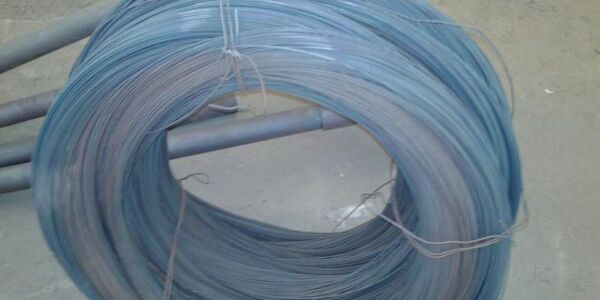Notifications
ALL BUSINESS
COMIDA
DIRECTORIES
ENTERTAINMENT
FINER THINGS
HEALTH
MARKETPLACE
MEMBER's ONLY
MONEY MATTER$
MOTIVATIONAL
NEWS & WEATHER
TECHNOLOGIA
TV NETWORKS
VIDEOS
VOTE USA 2026/2028
INVESTOR RELATIONS
DEV FOR 2025 / 2026
ALL BUSINESS
COMIDA
DIRECTORIES
ENTERTAINMENT
FINER THINGS
HEALTH
MARKETPLACE
MEMBER's ONLY
MONEY MATTER$
MOTIVATIONAL
NEWS & WEATHER
TECHNOLOGIA
TV NETWORKS
VIDEOS
VOTE USA 2026/2028
INVESTOR RELATIONS
DEV FOR 2025 / 2026
 Ravi Sankar -
8 hours ago -
Business -
Binding Wire in Chennai
Rice Mill Sheet in Chennai
Diamond Mesh in Chennai
Speaker Box Sheet in Chennai
Knit Mesh in Chennai
Rat Mesh in Chennai
Mosquito Net in Chennai
-
27 views -
0 Comments -
0 Likes -
0 Reviews
Ravi Sankar -
8 hours ago -
Business -
Binding Wire in Chennai
Rice Mill Sheet in Chennai
Diamond Mesh in Chennai
Speaker Box Sheet in Chennai
Knit Mesh in Chennai
Rat Mesh in Chennai
Mosquito Net in Chennai
-
27 views -
0 Comments -
0 Likes -
0 Reviews

In Chennai’s ever-evolving construction landscape, structural integrity and safety are top priorities for every builder and project manager. From high-rise apartments to commercial complexes and infrastructure projects, reinforced concrete is the backbone of most constructions. Among the many materials that contribute to this strength, binding wire plays a crucial yet often overlooked role.
Binding wire is used primarily to tie reinforcement bars (rebars) in position before concrete is poured. It ensures that the steel framework stays intact during construction and curing, thereby supporting the overall strength and stability of the structure. With a wide range of wire types, gauges, and materials available in the market, choosing the right binding wire in Chennai can make a significant difference in the quality and efficiency of a construction project.
Here’s a comprehensive guide on how to select the right binding wire for your construction needs in Chennai.
Before choosing any construction material, it’s essential to factor in the local climate. Chennai has a coastal and tropical climate, characterized by high humidity, occasional heavy rainfall, and high temperatures for much of the year.
These environmental conditions mean that corrosion resistance should be a key factor when selecting binding wire. Choosing galvanized or coated binding wire helps in reducing rust formation, especially for projects exposed to the outdoors or with long construction timelines. Corrosion-resistant wire ensures durability and longevity of the tied reinforcement.
There are various types of binding wire available based on the manufacturing process and surface finish:
Annealed Binding Wire: This type is softened through a heat treatment process, making it more flexible and easier to work with. It’s ideal for manually tying rebars and is commonly used in general construction.
Galvanized Binding Wire: This wire is coated with a layer of zinc to protect against rust. It is highly recommended for construction in coastal cities like Chennai, where humidity can speed up corrosion.
PVC Coated Binding Wire: A plastic-coated version of binding wire, used when extra corrosion protection or insulation is required. It’s mostly used in specialized applications or exposed areas.
Choosing the right type depends on the construction environment and the specific purpose of the wire.
The thickness of binding wire, measured in gauge or millimeters, determines its strength and usability. Commonly used wire thicknesses range between 0.8 mm to 1.2 mm for construction purposes.
Thinner wire (around 0.8 mm) is easier to twist and is suitable for lighter structures or mesh tying.
Thicker wire (1.0 mm to 1.2 mm) is used for tying larger rebars or for projects where extra tensile strength is required.
For most structural concrete applications in Chennai, a wire of 1.0 mm is typically used, offering a balance between ease of use and strength.
Flexibility is vital when workers need to manually tie wire around rebars. At the same time, the wire must also possess adequate tensile strength to hold the reinforcement securely under stress.
Test samples or request specifications when sourcing binding wire to ensure it meets industry standards for flexibility and strength. Soft yet strong wire minimizes worker fatigue and speeds up installation, improving overall efficiency at the job site.
This balance of strength and pliability is also crucial when working with other construction materials like diamond mesh in Chennai, which requires secure fastening without damaging its structure. Ensuring your binding wire can adapt to various reinforcement formats, including diamond mesh panels, helps maintain construction quality and structural integrity.
Binding wire is not just used for tying rebars—it also has many auxiliary functions in construction, such as:
Fixing mesh in flooring and walls
Securing scaffolding components
Tying electrical and plumbing conduits
Assembling temporary fencing or frameworks
Each of these applications may require a different type or gauge of wire. Understanding the specific needs of your project helps in choosing the most appropriate wire type and quantity.
One of the common issues at construction sites is inconsistency in wire quality. Inferior or inconsistent wire can break during use or corrode prematurely, leading to delays or additional maintenance.
It’s important to procure binding wire that meets recognized quality standards. Whether you’re buying in bulk or in smaller quantities, always inspect the wire for uniform thickness, smooth coating (if galvanized), and absence of rust or deformities.
For large-scale projects in Chennai, where continuity of work is vital, ensure that your supplier can provide consistent and timely deliveries. Inconsistent supply or quality can slow down reinforcement work and affect the project timeline.
While binding wire is a relatively inexpensive construction material, costs can add up in large projects. It’s important to strike a balance between cost and performance.
Avoid the temptation to use extremely cheap wire, which might compromise quality and lead to problems such as snapping, rusting, or poor flexibility. Instead, choose wire that offers long-term value through durability, corrosion resistance, and ease of use—especially in Chennai’s weather conditions.
Choosing the right binding wire in Chennai involves more than just picking any roll off the shelf. It requires thoughtful consideration of the project’s scale, environmental conditions, material properties, and construction goals.
Given Chennai’s tropical and coastal climate, selecting corrosion-resistant binding wire such as galvanized or PVC-coated variants is often a smart move. Also, ensure that the gauge, tensile strength, and flexibility align with the needs of your reinforcement layout and the skill level of the workforce.
By investing in the right type of binding wire, construction professionals can enhance structural strength, reduce long-term maintenance, and ensure efficient workflow on-site. Whether you're working on a high-rise apartment, a commercial building, or civil infrastructure, making the right choice in binding wire contributes to a safer, stronger, and longer-lasting structure.
